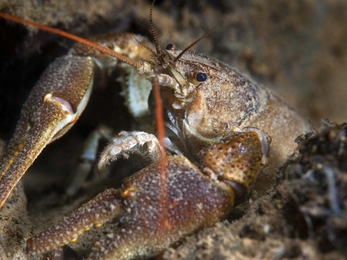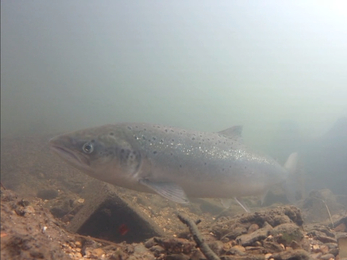On 22nd September, Business Secretary Jacob Rees-Mogg introduced to Parliament the Retained EU Law Bill – very soon the Bill will have a second reading. Touted as a Brexit benefit, this ‘bonfire of red tape’ is set to reform and revoke the 2400-plus laws that have their origins in the European Union. UK Government’s aim is to remove all traces of EU law from the statute book by 2026, with most expiring at the end of 2023 under a benign-sounding ‘sunset’ clause. But this could spell dark times ahead for nature, with particular impacts for our rivers, streams, seas and lakes.
A public dashboard charts the enormity of the task awaiting civil servants, with environment department, Defra, having the greatest workload. 570 pieces of its legislation are affected, with 437 yet to be worked through and amended or repealed. Given that it took nearly two years to take just the Environment Act though parliament, this seems an insurmountable task. Search ‘water’ and 29 laws remain on the to-do list. Doesn’t sound so bad? Well let’s look at what’s at stake:
- Overarching protections could be lost: Top of the hitlist could be the regulations that implement the Water Framework Directive. This behemoth is the key piece of legislation on the overall improvement of the water environment, setting both chemical and ecological targets that have seen us begin to reverse the UK’s long legacy of industrial pollution and river modification. Newer threats like sewage pollution and excessive abstraction are only just beginning to be brought under control and the key to tackling them is the holistic approach that sees us considering the effects on fish, insects and other wildlife, to tell us whether our rivers, lakes, estuaries and coasts are healthy. (Spoiler: they’re not). Targets set under England’s Environment Act, due for publication this month will continue to drive action on some of the most important pressures, but without an overarching framework we’d likely see positive trends on specific issues whilst the overall health of our waters continues to go down the drain.
- Swimming in sewage: Other casualties could include the regulations that control how wastewater is managed. The Urban Waste Water Treatment Regulations require that wastewater from populations over 10K, where discharged into the catchments of sites vulnerable to nutrient pollution, must be treated to high standards in order to avoid damage. The Bathing Waters Regulations also tackle sewage pollution but from the perspective of human health, requiring that waters are monitored for sewage bacteria, and bathers are informed of risks. More than 70% of bathing waters here are classed as ‘excellent’ and although the EU average is nearly 85%, the UK figure still represents a solid improvement over historic pollution levels. However, shocking statistics on the amount of sewage discharged into our rivers revealed that in 2021, untreated sewage spilled from England’s sewers for over two and a half million hours. Prolific use of these Storm Overflows, primarily on rivers not subject to European protections, should act as a clear warning against the weakening of the protections from sewage pollution that we do have.
- Chemical cocktails: Although not even listed under ‘water’, another key set of regulations on Defra’s books are ‘REACH’; the Registration, Evaluation, Authorisation and restriction of Chemicals, and the control of ‘Plant Protection Products’, aka pesticides. These inherently sensible regulations protect our waters by requiring us to develop at least some understanding of the risks associated with chemicals, and provide a means for government to restrict or ban those which are most harmful. Their purpose is to provide protection to human health and the environment – something most would not consider ‘unnecessary red tape’.
- Drowning in farming pollution: Finally, though sewage gets a lot of the water pollution limelight, in reality it is farming that is now responsible for a greater proportion of the pressures that impact our waters. Regulations known as the ‘Farming Rules for Water’, designed to prevent pollution from agricultural land, have not even come into full use before they are at risk of disappearing. Introduced in 2018, advice & guidance to help farmers comply did little to improve practices, with over 80% of inspections in 2020 to 2021 finding breaches of the rules. Action isn’t yet taken against most rule-breaks, so soil erosion, pesticide residues and excess fertilizers all continue to harm rural waterways. This is particularly a risk where stores for slurry - a mixture of manure and water farmers spread on fields as fertiliser - are inadequate to hold the volume of slurry produced by a farm. This means that spreading takes place not when crops and soils need and can absorb the valuable nutrients, but just whenever excess slurry needs to be disposed of. The damage to rivers and the loss to farmers, is tragic. On top of this, the rules governing the storage of slurry are also on the dashboard. Losing these would remove the onus to upgrade stores, risking ongoing pollution to our beleaguered waters.
An attack on our waters?
These potential losses sound alarming – and they are. Even though the UK had a key hand in developing many of these protections, signs suggest they will be thrown on the government’s red tape bonfire. Although we may not lose them in full, we don’t yet know which bits of these vital protections are at risk.



